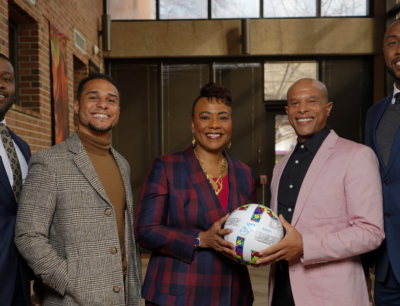Black-Owned Bank to Finance Redesign of Baltimore Arena
NBBF board includes government, financial services, civil rights, sports, entertainment, and philanthropic executives an
Notice: Test mode is enabled. While in test mode no live donations are processed.

NBBF board includes government, financial services, civil rights, sports, entertainment, and philanthropic executives an

NBBF board includes government, financial services, civil rights, sports, entertainment, and philanthropic executives an

NBBF board includes government, financial services, civil rights, sports, entertainment, and philanthropic executives an
